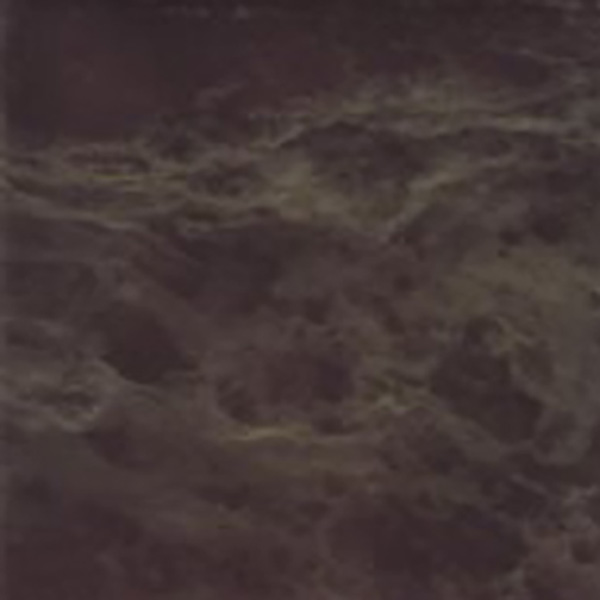
by Tim Owen
February 25, 2009
/ ALBUM
A tumultuous brand of improvisational carnage
Aufgehoben’s music might not be most people’s idea of ?Jazz’, and there aren’t many antecedents for their tumultuous brand of improvisational carnage. You could perhaps view them as inheritors of the muscular strain of European free music that gave us the likes of Peter Br?tzmann’s Machine Gun and Last Exit, but their marketing almost scuppered my intention to review this, their fifth album, by slapping a sticker on the packaging that declares them “kings of fractured avant rock”. That description - fractured rock - could perhaps be applied to the groups’ last effort Messidor (2006), on which one of the seven tracks did bear some trace of riffage. Khora, however, takes a few steps further out.
Consider Khora’s credited instrumentation which is, as before: “two drums, electronics, bricks and metal, one mono GS” (that GS alluding to now-permanent ?guest’ member Gary Smith, who more often plays a stereo electric guitar. He may be familiar from his work with Lou Ciccotelli and Gary Jeff in the power-jazz trio Mass); these are hardly standard tools for rocking out. The band’s arsenal suggests a kinship with the early Industrial phase of Einsturzende Neubauten which is occasionally warranted; for example the lengthy final piece emerged, according to drummer Stephen Robinson, “spontaneously at the end of [an] experiment using a shopping trolley and lengths of alloy metals on a stone floor”. Parallels could also be drawn with Noise artists such as Wolf Eyes or Whitehouse, but whereas those groups rely on samples and regular beats, Aufgehoben play live and improvise all of their source material (all of Khora’s basic material being recorded in one day). The subsequent processing of that material may or may not be drastic, but never simplifies or commodifies, but rather recontextualises it, making it denser and more complex. Robinson, the more aggressive of Aufgehoben’s two drummers, is also the man responsible for this reconstruction, and he was kind enough to explain the methodology for me thus:
“We improvise in the studio and record crudely [with] no overdubs. We mix down to stereo [and] editing and processing is applied to the stereo mixes.” This stereo source material renders standard remixing impossible, but “there is generally a good deal of trimming and reconstruction work”.
Robinson will often “take sections from one distinct improvisation and juxtapose or work them into a section from another improvisation, overlaying, editing and merging them together in various ways until a structure emerges that has its own logic and development. Sometimes this can be quite at odds with the development found in the source materials, at other times it accentuates or makes explicit the movement or structure?implicit in the original improvisation.”
Robinson tells me the first track on Khora, Ignorance Oblivion Contempt, “was trimmed from a single blast that originally lasted 14 minutes [using] folds - folding the material that would have been removed from a standard edit back into the final track, the result being that although the final track runs to something over 4 minutes, all 14 minutes of the original are still preserved within it.” I can’t think of a better description of this piece than Robinson’s own, which alludes to its “density and fluidity?a continually shifting undertow of colliding sounds that work their way through the dominant structuring devices that give shape to the track, occasionally at odds with it, but all careering in the same direction.” By contrast, the closing track, Jederfursich, is almost half an hour of unedited improvisation with no editing beyond some sound processing. It’s a charged blast of sustained intensity, though not without a degree of finesse and it ably demonstrates that for all the reconstruction, Aufgehoben isn’t a studio-bound project, but also a ferociously good live act.
The most concise encapsulation of the Khora sound is to be found between the extremes of these two tracks, in the second and third pieces, in which the live/studio balance is most finely judged. The brief Annex Organon starts with the sound of metal in contact with stone, dragged, hammered and otherwise manipulated, while Gary Smith gouges complementary sounds from his guitar. A sporadically rhythmic beat (as struck on an anvil) goads the group into an aggressive passage that subsequently disintegrates to reveal the subtlety with which the group is capable of making sound. The use of electronics is judicious and congruous. The third track, A Bastard Reasoning, follows on organically but the sound world becomes more sonorous, saturated with electronic reverberations that are punctuated by relatively orthodox drumming. Smith’s guitar grinds across this landscape like heavy armour across a wasteland. Well before the ten minutes of the track are over the sonic density builds to a perfect storm in aural widescreen. In surround sound this would be absolutely apocalyptic; in stereo the effect is visceral enough.
For the curious, A Bastard Reasoning takes its title from passage 52b of Plato’s Timaeus, which explores the idea of Khora for which the album is named.
Aufgehoben play very infrequently, but anyone in the Newcastle region can see them play live at the Star and Shadow on 7th March 2009.
blog comments powered by Disqus